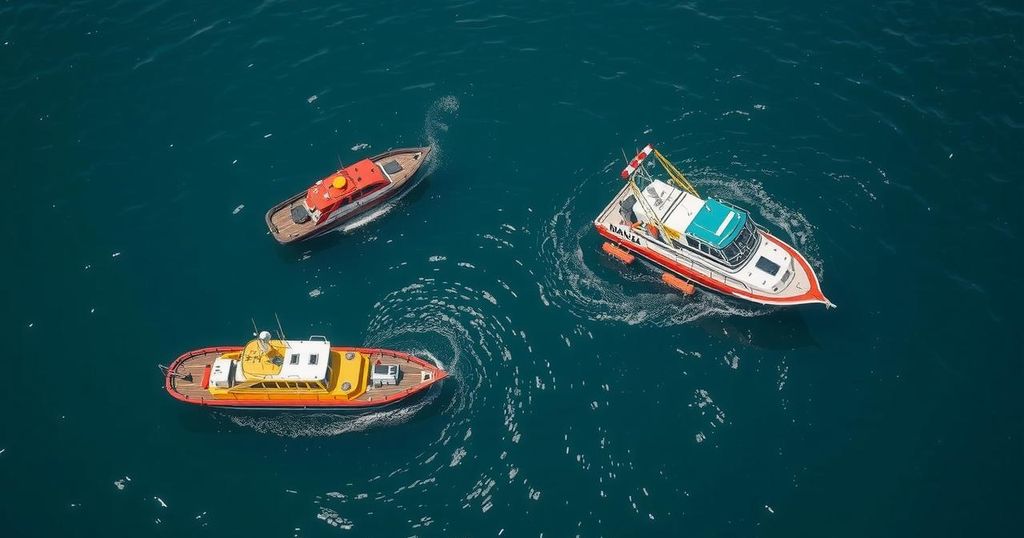World news
AFRICA, ANTANANARIVO, ASIA, CRISIS, DJIBOUTI, EDMOND RANDRIANANTENAINA, FOREIGN MINISTRY, GULF STATES, HORN OF AFRICA, INDIAN OCEAN, INTERNATIONAL AID, INTERNATIONAL ORGANIZATION FOR MIGRATION, JEAN, JEAN - EDMOND RANDRIANANTENAINA, LI, MADAGASCAR, MARITIME PORTS AGENCY, MAYOTTE, MIGRATION, MOGADISHU, NATURAL DISASTERS, NOSY BE, RANDRIANANTENAI, RANDRIANANTENAINA, REFUGEES, SOMALIA, TURKEY FARM, U. N, U. N AGENCY, YEMEN
Elena Martinez
0 Comments
Tragic Capsizing of Somali Migrant Boats Near Madagascar Claims 25 Lives
The death toll from the capsizing of boats carrying Somali migrants near Madagascar has risen to 25, with 48 survivors rescued. The boats were en route to Mayotte after leaving Mogadishu with 73 individuals aboard. An investigation is ongoing, and Somali authorities are arranging for the repatriation of the deceased. This incident underscores the ongoing plight of migrants fleeing precarious conditions in the Horn of Africa.
Madagascar officials confirmed on Monday that the death toll from the capsizing of two motorboats carrying Somali migrants has risen to 25. The vessels capsized in the Indian Ocean while the migrants sought to reach the French island territory of Mayotte, located approximately 1,600 kilometers from Mogadishu. After nearly a month at sea, the boats departed from a beach near the Somali capital with 73 individuals onboard. Authorities reported that 48 survivors, aged 17 to 50, were rescued near Nosy Be, a northern island of Madagascar. An investigation into the incident is currently underway, while a delegation from Somalia is expected to assist in repatriating the victims. The U.N. International Organization for Migration has been sought for aid in this matter.
Every year, many young Somalis undertake perilous journeys seeking better prospects abroad, largely fleeing conflict and drought conditions. This incident reflects a troubling trend of irregular migration from Horn of Africa nations, which has raised concerns among international agencies. Similar tragedies have been recorded, including an April shipwreck off Djibouti that resulted in the deaths of 38 migrants, predominantly Somali and Ethiopian nationals, who were also in search of work opportunities in Gulf States.
The maritime tragedy underscores the ongoing human crisis stemming from the dire circumstances in the region. With a reliance on perilous sea routes, many migrants risk their lives in hopes of a better future, a narrative that continues to gain attention and concern as governments and international organizations grapple with migration policy and humanitarian assistance.
The tragic capsizing of boats carrying Somali migrants near Madagascar raises critical awareness of the pressing issues surrounding irregular migration from the Horn of Africa. Many individuals, including youth, embark on these dangerous voyages in search of improved living conditions and economic opportunities. The factors driving this trend include prolonged conflicts and severe droughts that plague the region, compelling individuals to leave their homes in search of refuge and stability. The involvement of international organizations, such as the U.N. International Organization for Migration, is pivotal in addressing the complex challenges of migration, providing necessary support and assistance to affected populations. The phenomenon of irregular migration reflects broader systemic challenges that necessitate coordinated responses from countries of origin, transit, and destination.
In conclusion, the recent capsizing incident off Madagascar, which resulted in the tragic loss of 25 Somali migrants, highlights the perilous journeys many undertake in pursuit of better lives. As investigations continue and survival efforts for the repatriation of the victims are organized, this unfortunate event serves as a reminder of the broader issue of irregular migration stemming from conflicts and environmental crises in the Horn of Africa. Collaborative international efforts are vital to address the underlying causes and safeguard the lives of those seeking better opportunities.
Original Source: www.newsday.com




Post Comment